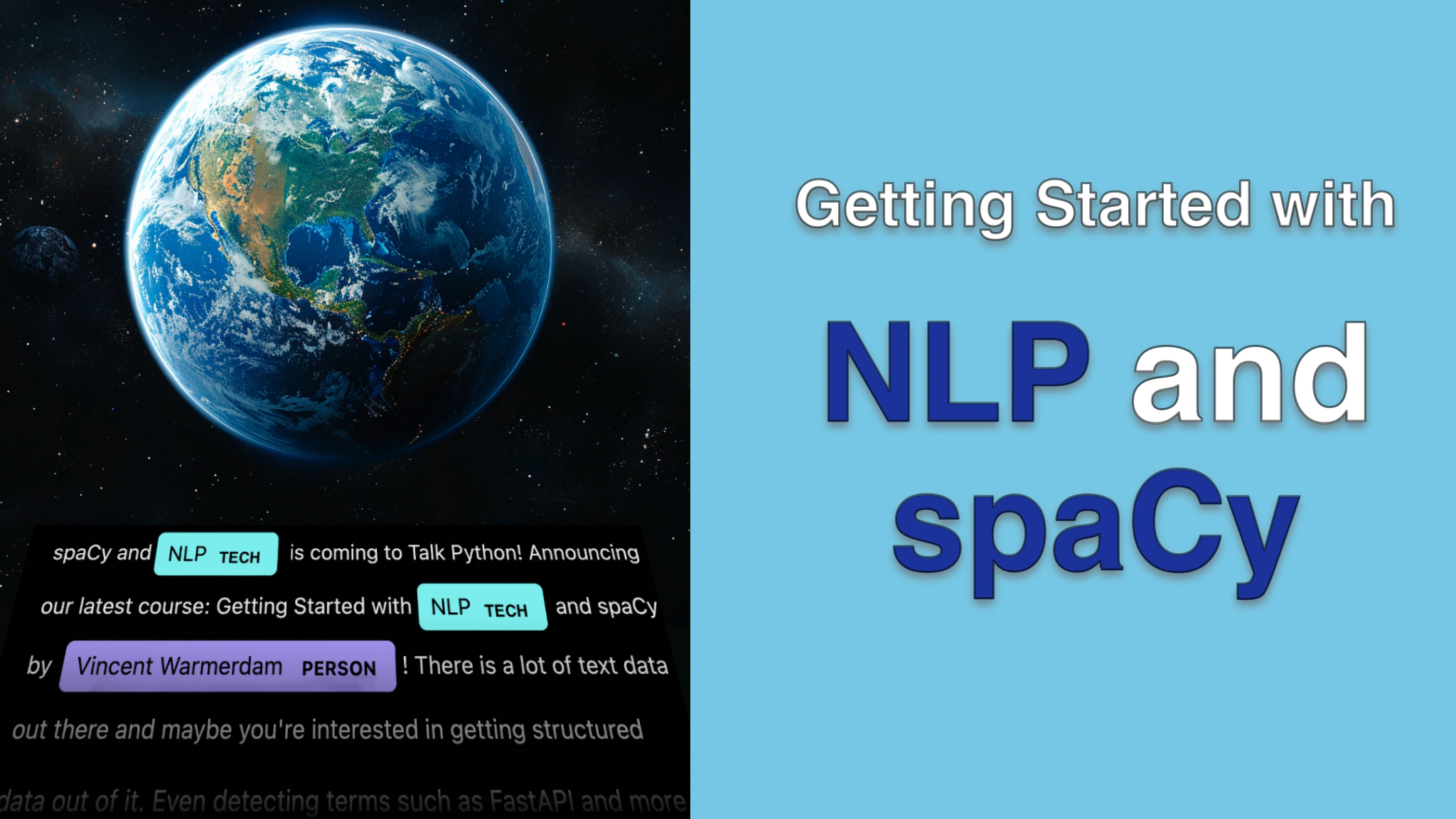Getting Started with NLP and spaCy Transcripts
Chapter: Wrap up
Lecture: Next steps
Login or
purchase this course
to watch this video and the rest of the course contents.
0:00
Time to wrap up. I hope that in this course I've been able to show you a few nice things about spaCy as well as how to do NLP projects in general.
0:11
I've also given a glimpse of what you might be able to do with NLMs as well as some other tools.
0:15
So at this point you might be thinking, well great, I've done a course, what now? And I guess my advice is pretty simple.
0:25
The way that I've learned NLP is to really just expose myself to NLP problems. And I might give the same advice to you.
0:33
If you want to learn NLP, at some point you really just got to get your hands dirty.
0:37
You can try to read all the books and all the documentation pages, but more often than not, you really need a motivating example to keep you going.
0:45
So maybe think a little bit about some text as well as a use case that you might have for yourself.
0:51
And if you don't have one right now, well, one thing you could do is you could go to the transcripts
0:57
of the Talk Python podcast and you can try to build your own NER model on these transcripts on something that you are interested in.
1:05
You can use the code from this course as a starting point, but I do really recommend you to give it your own try
1:11
and to see what interesting things you might be able to do with this data set. It really is pretty fun to play with.
1:17
You can definitely also use your own data sets, but if you've got a problem like this,
1:21
what's probably going to happen is you're going to hit a problem, which will act as a forcing function for you to check the spaCy documentation.
1:29
Maybe you want to build a custom pipeline and that'll be a reason for you to read this document.
1:35
But by the time you're here, you will have a motivating example for you to keep going. And that, I think, is the most important thing to do right now.
1:45
I would worry slightly less about the theory and the models out there.
1:49
I would mainly just try to focus in on a fun problem that you'd enjoy working on. The name of the game here still is iteration.
1:59
You want to be in a flow where you're able to make changes and see if they work.
2:03
But iteration really becomes a lot easier if you've got a fun example to work on. So if anything, try to focus on that first.
2:11
If you don't have text data yourself, do trust me, these transcripts are pretty fun to dive into.
